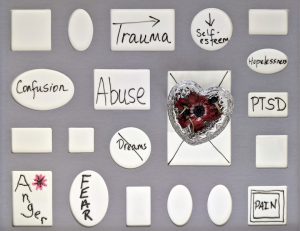You’ve likely heard of post-traumatic stress disorder (PTSD), a mental health condition that can cause someone to experience anxiety, flashbacks, nightmares, and other symptoms after living through a traumatic event. But did you know that the mental health community commonly divides PTSD into five stages? They are:
- Impact – This stage occurs immediately after someone experiences a traumatic event. The person may feel shocked, overwhelmed, powerless, guilty, anxious, or afraid.
- Denial – Because the brain naturally blocks out traumatic experiences to protect itself, some people may go through a stage where they deny that the traumatic event occurred in the first place.
- Rescue – During the rescue stage, someone begins coming to terms with the traumatic event, possibly returning to the site where it occurred or ruminating about what happened. Many people experience confusion, despair, hopelessness, and anger during this phase.
- Acceptance – Once someone regains their sense of safety and begins to look at the traumatic event in a new light, they may recognize the impact that the experience had on their life and accept that they need help to move on from what happened. Anxiety and insomnia are common at this stage.
- Recovery – During this final stage, someone takes affirmative steps (such as seeking professional help) to effectively process, heal from their traumatic experience and implement coping skills..
PTSD Treatment
No matter what stage of PTSD you’re in right now, there is hope. I regularly work with individuals who are living with PTSD and developmental trauma. After learning about your background and how PTSD affects you, I work with you to overcome your symptoms and achieve an improved quality of life. EMDR eye movement desensitization and reprocessing is an effective treatment approach for resolution of traumatic memories. Contact my office today to learn more about my practice and schedule your first therapy session.



Leave a Reply